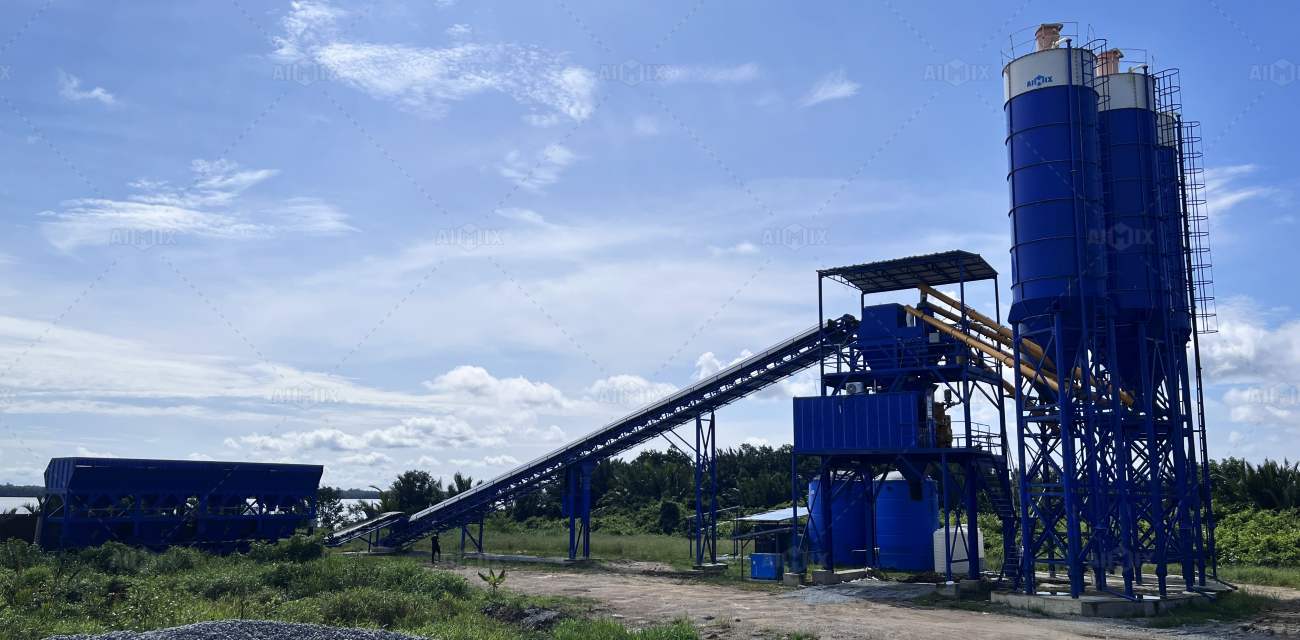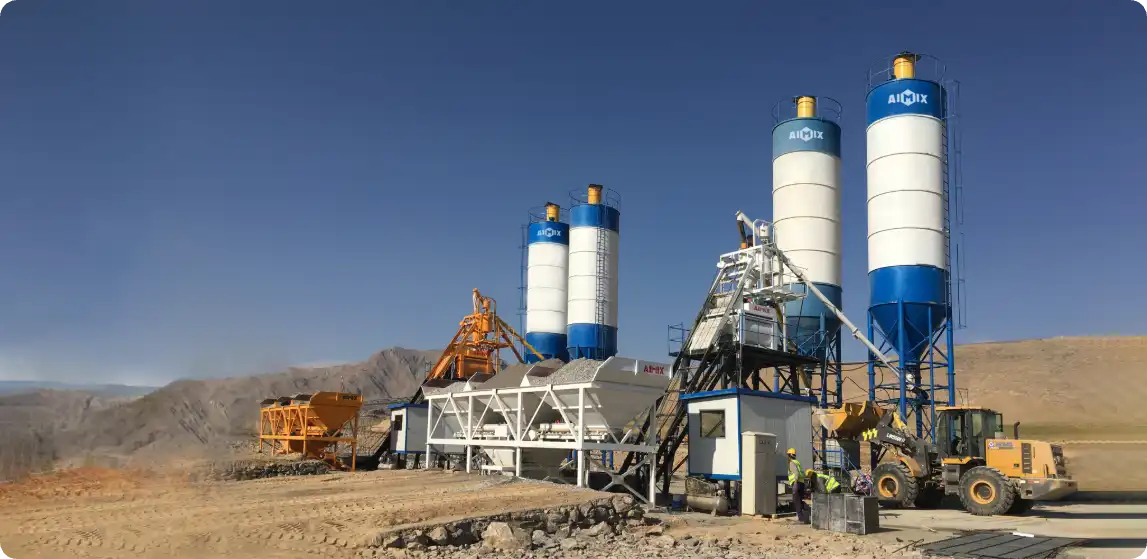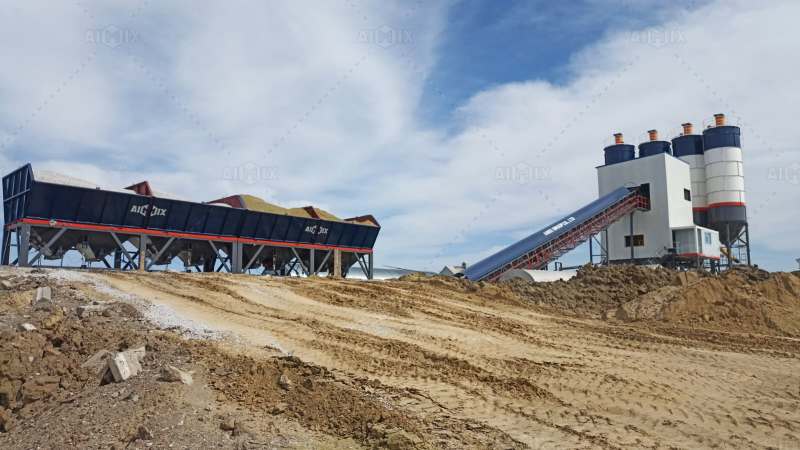As the construction industry increasingly embraces sustainability, eco-efficient designs in ready mix concrete (RMC) production are playing a vital role in shaping both operational models and cost structures. A growing number of contractors and developers are not only prioritizing environmental compliance but also seeking cost-effective solutions that align with green building initiatives. This has created a strong link between eco-efficiency and the overall ready mix concrete plant cost—a relationship that both influences and reflects broader trends in the RMC plant business.
Whether you’re an investor entering the concrete supply market, a contractor looking for a mobile RMC plant, or a buyer comparing solutions from different ready mix concrete plant manufacturers, understanding how eco-friendly features affect plant cost is key to making informed decisions.

1. What Are Eco-Efficient RMC Plants?
Eco-efficient RMC plants are designed to reduce energy consumption, minimize waste, and lower emissions without compromising productivity. These environmentally conscious designs are rapidly becoming the industry standard, especially as more construction projects seek LEED certification or must comply with stringent local environmental regulations.
Key characteristics of eco-efficient plants include:
Energy-saving motors and mixing systems
Recycling systems for slurry water and leftover concrete
Dust and noise reduction features
Smart automation to reduce human error and material waste
Solar-powered or hybrid energy integrations
Whether integrated into a fixed facility or a mobile RMC plant, these features add a layer of sophistication—and often additional cost—to the initial setup. However, they typically result in lower operational expenses and increased long-term ROI.
2. Initial Cost vs. Lifecycle Cost
One of the biggest concerns for new entrants in the RMC plant business is balancing capital investment with long-term savings. Eco-efficient designs may slightly raise the initial cost of a ready mix concrete plant, but they significantly reduce operational expenditures over time.
Let’s break this down:
| Feature | Adds to Initial Cost? | Reduces Long-Term Cost? |
|---|---|---|
| Energy-efficient motors | Yes | Yes |
| Recycling system | Yes | Yes |
| Smart automation | Yes | Yes |
| Emission control filters | Yes | Yes |
| Solar power integration | Yes | Yes |
For example, a recycling system that reuses water and aggregates from unused concrete can cut water usage by up to 70%—translating into thousands in annual savings. Similarly, optimized energy usage can lower electricity bills and reduce maintenance frequency.
This approach is especially useful in mobile RMC plants, which often operate in remote areas with limited resources. In such locations, energy and water conservation is not only eco-friendly but also essential for efficiency.

3. Mobile RMC Plants: Portability Meets Sustainability
Mobile RMC plants are ideal for contractors who need flexibility without compromising on quality. These compact units are engineered for quick installation and dismantling, making them perfect for road construction, infrastructure upgrades, and temporary urban projects.
Integrating eco-efficient features into mobile plants is both a technical and financial balancing act. Manufacturers are now building mobile units with:
Built-in water recycling tanks
Eco-friendly fuel options
Compact dust suppression systems
Energy-smart automation software
While this makes mobile rmc plant slightly more expensive than traditional compact plants, their lower fuel usage, quicker setup, and reduced manpower offer long-term savings—making them a smart investment for mobile construction teams.
4. What This Means for Ready Mix Concrete Plant Manufacturers
Customers now demand not just durability and high output but also compliance with environmental standards and efficient use of natural resources. Ready mix concrete plant manufacturers are under pressure to innovate while remaining cost-competitive.
To meet this demand, manufacturers have adapted by:
Offering modular eco-friendly upgrades (e.g., solar panels, automated dosing)
Redesigning mixers to optimize energy usage
Providing remote monitoring for real-time adjustments to reduce waste
Introducing plug-and-play recycling systems
Manufacturers such as Aimix, Schwing Stetter, and others are increasingly focused on this green direction, helping clients set up eco-efficient RMC plants that reduce both carbon footprints and operating costs.

5. Government Regulations and Incentives
In many regions, government incentives are now pushing companies toward greener operations. These may include:
Tax rebates for using solar energy systems
Subsidies for installing water recycling equipment
Faster permits for plants with dust and noise suppression
On the flip side, failing to adopt eco-efficient systems can lead to penalties or rejected building project tenders. So for many businesses, investing in an eco-efficient ready mix concrete plant isn’t just about savings—it’s about staying compliant and competitive.
6. Eco-Efficiency as a Branding Strategy in RMC Business
Eco-friendly construction is no longer niche—it’s mainstream. For businesses in the RMC plant sector, positioning themselves as environmentally conscious can boost credibility, attract modern construction companies, and create marketing leverage.
Clients are more likely to choose a supplier who:
Reduces concrete waste through smarter batching
Limits environmental disturbance with low-emission operations
Helps them earn green certifications on projects
This positions your RMC plant business as a modern, reliable, and forward-thinking brand in a competitive market.
Conclusion
Eco-efficient designs are transforming the landscape of ready mix concrete plant cost—not just by increasing the upfront investment, but by redefining long-term profitability and sustainability. From mobile RMC plants that save on logistics and energy, to fixed installations that cut water waste and emissions, the future of concrete batching is undeniably green.
Ready mix concrete plant manufacturers that embrace eco-innovation will continue to lead the market, offering smarter, cleaner, and more cost-effective solutions to modern construction challenges. Whether you’re just entering the RMC plant business or upgrading existing equipment, eco-efficiency is no longer optional—it’s essential.
